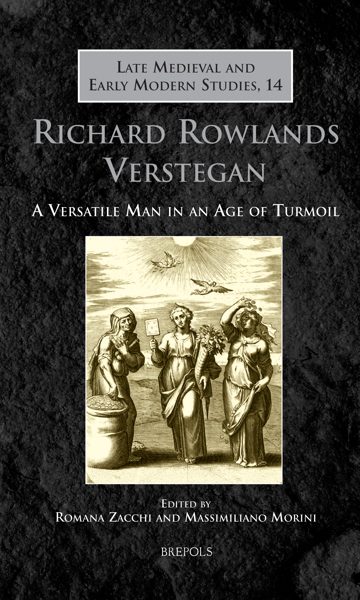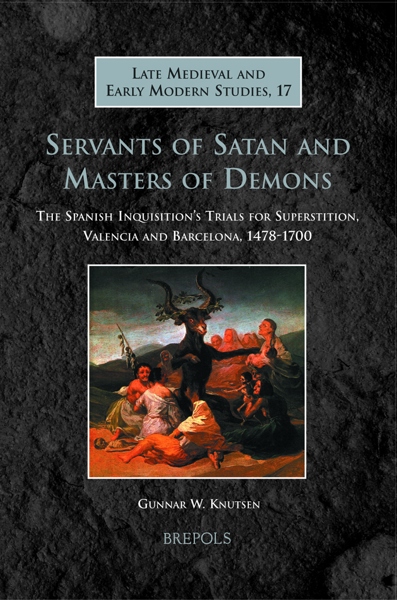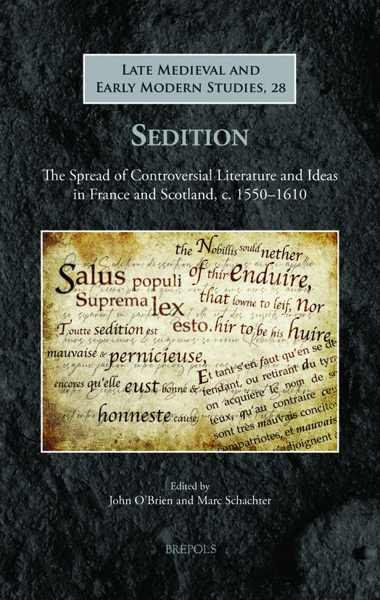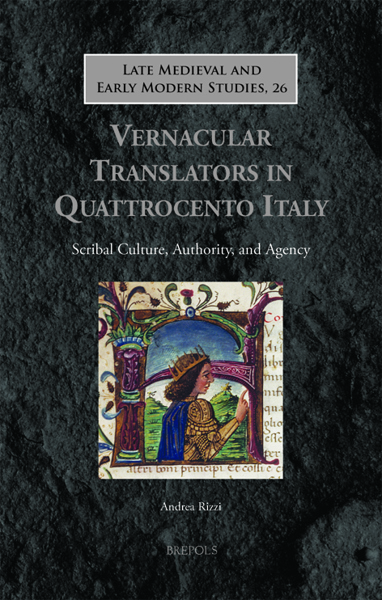
Servants of Satan and Masters of Demons
The Spanish Inquisition’s Trials for Superstition, Valencia and Barcelona, 1478-1700
Gunnar W. Knutsen
- Pages: xviii + 228 p.
- Size:156 x 234 mm
- Illustrations:5 b/w, 3 tables b/w.
- Language(s):English
- Publication Year:2010
- € 70,00 EXCL. VAT RETAIL PRICE
- ISBN: 978-2-503-52861-8
- Hardback
- Available
- € 70,00 EXCL. VAT RETAIL PRICE
- ISBN: 978-2-503-57195-9
- E-book
- Available
"Knutsen has provided us with a serious, profound, yet concise and detailed, examination of the study of witchcraft in the Iberian Mediterranean area."
(María Jesús Zamora Calvo, in Renaissance Quarterly 64/1, Spring 2011, p. 266)
"The meticulous research work carried out by the author in the inquisitorial archives here translates into a fascinating gallery of characters who give us greater insight into the real culture of a country still overshadowed by the 'black legend'."
(María Tausiet, in The Journal of Ecclesiastical History 62/2, April 2011, p. 390)
"[Knutsen] has given scholars and extraordinarily useful book. [...] His excellent translations of the sources - simultaneously precise and readable - are a highlight of the book."
(Michael A. Ryan, in The Medieval Review, June 2011)
"[...] the reader reaps the benefits of perseverance in both the important insights, gleaned from this work and the sometimes touching, sometimes dramatic but always detailed retellings of the very personal stories which bring the actors to life and make this study enthralling reading."
(Julie Davies, in Parergon 27.2, 2010, p. 244)
"[the author] carefully translates and defines his terms and passages from Latin and medieval Spanish into English making his work accessible to both international scholars and interested advanced undergraduates."
(Wendy J. Turner, in Sixteenth Century Journal Vol. XLIII, No. 3, Fall 2012, p. 776-777)
These contrasts bring into focus significant differences in culture and mythology. The Barcelona Inquisition was unable to enforce its jurisdiction over trials for diabolical witchcraft, while the Valencian Inquisition was able to do just that because Valencians rejected the demonological concept of witchcraft. This was due mainly to the Valencians’ own magical culture which emphasized man’s ability to control and force demons, but also to the fact that Moriscos formed the majority of the rural population, which was the primary focus of witchcraft trials in Europe. By comparing the Catalan and Valencian tribunals, the book thus seeks to explain the absence in the southern half of Spain of brujas, witches who gave their souls to the devil, flew through the night, took part in wild orgies at the witches’ sabbat, and caused death and destruction through magical means.
Preface
Note to the Reader
List of Abbreviations
Introduction
Background
Chapter 1: The Inquisition
Chapter 2: Christians and Muslims
Chapter 3: Overview
Barcelona
Chapter 4: A Plague of Witches
Chapter 5: Courts of Injustice
Valencia
Chapter 6: Three Case Studies
Chapter 7: A Cautious Inquisition
Chapter 8: Incompatible Cosmologies
Conclusion
Appendix 1: Glossary
Appendix 2: Case Lists
Bibliography




